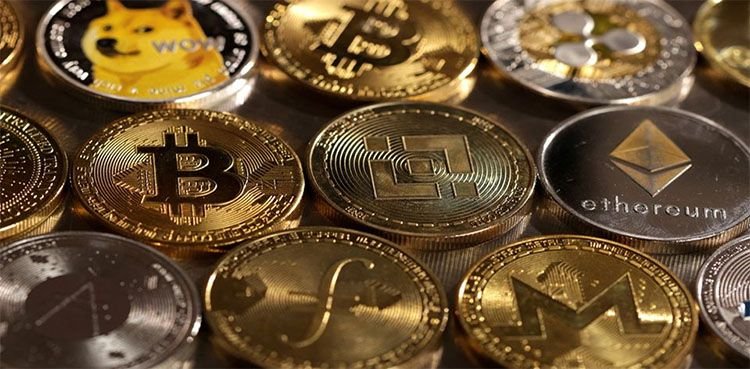The cryptocurrency landscape is evolving rapidly, with significant developments that have the potential to reshape global financial systems. Two prominent narratives are currently emerging: the debate over the feasibility of national Bitcoin reserves, exemplified by US President-elect Donald Trump’s proposal, and the institutional adoption of cryptocurrency in South Korea. Both issues highlight the complex intersection of regulation, global finance, and the evolving role of cryptocurrencies in the world economy.
In 2024, the conversation surrounding Bitcoin’s role as a potential national reserve asset has gained momentum. In a notable opinion piece, Wang Yongli, the former vice president of the Bank of China, sharply criticized Trump’s Bitcoin reserve proposal, arguing that it contradicts the broader goal of maintaining the dollar’s global dominance. Meanwhile, in South Korea, the government is moving towards institutional crypto adoption, indicating a shift in its stance towards cryptocurrency regulation and corporate participation.
This article delves into both these issues, exploring the geopolitical implications of Bitcoin reserves and the potential for institutional crypto adoption in South Korea, alongside the broader impact these shifts could have on global finance.
Wang Yongli’s Criticism of Trump’s Bitcoin Reserve Proposal
The concept of creating a national Bitcoin reserve, proposed by US President-elect Donald Trump, has drawn mixed reactions from various financial experts and officials. Among the most vocal critics is Wang Yongli, the former vice president of the Bank of China, who argued that Trump’s proposal is at odds with the US’s desire to maintain the global dominance of the dollar. Wang’s concerns center on Bitcoin’s decentralized nature, which, according to him, undermines the role of the US dollar as the world’s primary reserve currency.
Bitcoin’s Decentralized Nature and the Dollar’s Global Role
In his opinion piece for China’s state-backed financial magazine, Wang wrote that Bitcoin’s decentralized structure offers no strategic advantage for bolstering the dollar’s global status. He emphasized that Bitcoin operates outside the control of any central authority, meaning it does not align with the US government’s objectives of maintaining its influence over the global financial system. If the US were to establish a Bitcoin reserve, it could inadvertently dilute the dollar’s dominance and encourage the adoption of a currency that operates outside of traditional monetary policy frameworks.
Wang also raised concerns about the potential risks associated with creating a national Bitcoin reserve, particularly the volatility of Bitcoin prices. Given Bitcoin’s price fluctuations, Wang questioned whether the US Treasury Department’s Foreign Exchange Stability Fund—valued at $206 billion—could manage the risks involved. He noted that without incurring additional debt or diminishing the value of the US dollar, it would be difficult to build a reserve that could rival other national currencies.
Seized Bitcoin and Ownership Disputes
Wang’s critique further focused on the practicality of using seized Bitcoin—such as those recovered from the Silk Road marketplace and other criminal enterprises—to build a national reserve. Trump’s proposal suggested that the US could turn seized Bitcoin into a stockpile for the nation. However, Wang emphasized that such actions would be problematic, as the rightful owners of the seized assets should be given back their stolen funds. In his view, using seized Bitcoin as part of a national reserve would not only be controversial but could also create legal and ethical complications.
While Trump’s proposal reflects a broader pro-crypto stance, Wang’s perspective highlights the difficulties of integrating cryptocurrencies like Bitcoin into traditional financial structures. His arguments are based on concerns about the risks associated with the volatile nature of digital currencies and the potential unintended consequences for the global financial order.
The Rise of Institutional Crypto Adoption in South Korea
In a different part of the world, South Korea is charting a new course for institutional participation in the cryptocurrency market. According to recent reports, South Korea’s Financial Services Commission (FSC) is taking steps toward gradually allowing corporate crypto investments, signaling a potential breakthrough for institutional crypto adoption in the country. This marks a significant shift from the previous stance, where institutions were largely prohibited from engaging in crypto trading due to the stringent regulations requiring real-name accounts for traders.
Real-Name Account Requirement and Corporate Crypto Access
Currently, crypto traders in South Korea must open real-name accounts at local banks that are officially partnered with crypto exchanges to access fiat-to-crypto services. This regulation has posed a challenge for institutional investors, who have been unable to open such real-name accounts. The FSC has long been hesitant to allow corporate participation, effectively putting a de facto ban on institutional crypto trading.
However, recent statements from the FSC suggest that it is now considering a gradual easing of these restrictions. In a presentation on January 8, 2024, the FSC outlined plans to assess the possibility of permitting real-name accounts for corporations through its cryptocurrency committee. This committee is scheduled to meet on January 15, 2024, to discuss the details of the proposal, marking a significant step toward institutional participation in the crypto space.
Prioritizing Universities and Municipalities in Initial Rollout
According to local media reports, the FSC intends to prioritize universities and municipalities in the initial phase of corporate crypto investment permissions. This move is seen as a way to test the waters before opening up the market to larger corporate players. The inclusion of universities and municipalities also signals a shift in how the South Korean government views crypto assets, recognizing their potential as tradeable wealth rather than simply a speculative asset class.
Despite this positive development, experts predict that large corporations will likely have to wait until 2027 before they can fully engage in crypto trading. This delay is due to the postponement of the implementation of South Korea’s crypto tax regulations, which have been delayed for the third time. Once these regulations are in place, corporate participation in crypto trading will likely expand, but only after the tax framework has been established.
The Regulatory Environment and Taxation
South Korea’s approach to cryptocurrency regulation has been cautious, with a focus on preventing illegal activities while allowing innovation to flourish. The government has closely monitored global trends, and its decision to gradually ease restrictions on institutional crypto trading is a sign that the country recognizes the potential economic benefits of cryptocurrencies.
However, the introduction of crypto tax laws remains a significant barrier to widespread institutional participation. Lawmakers had originally planned to implement a 20% tax on crypto profits starting in 2025, but this date has been delayed several times. The delay has allowed the South Korean government to further study the impacts of crypto taxation on the market, but it also means that institutional investors will not be able to fully enter the market until the regulatory landscape is clearer.
The Global Impact of Bitcoin Reserves and Institutional Crypto Adoption
The developments in both the United States and South Korea have broader implications for global finance and the future of cryptocurrencies. Trump’s Bitcoin reserve proposal, while controversial, could push other nations to reconsider the role of digital currencies in their monetary systems. If the US were to establish a national Bitcoin reserve, it would set a precedent that could lead to similar moves by other countries, potentially undermining the dominance of fiat currencies and shifting the balance of global power.
On the other hand, South Korea’s move towards institutional crypto adoption could serve as a model for other nations, particularly those in Asia, that are seeking to balance innovation with regulation. South Korea’s careful approach, prioritizing universities and municipalities in the initial rollout, shows that governments are increasingly open to incorporating cryptocurrencies into the mainstream financial system, but only with appropriate safeguards in place.
Challenges and Opportunities
While both the Bitcoin reserve proposal and the move toward institutional crypto adoption represent opportunities for growth in the crypto market, they also pose significant challenges. The decentralized nature of Bitcoin, as highlighted by Wang Yongli, presents inherent risks when considered as a reserve asset. Furthermore, regulatory uncertainty in countries like South Korea means that institutional adoption will likely be gradual, with significant hurdles to overcome before full participation becomes a reality.
Despite these challenges, the increasing interest from governments and institutions suggests that cryptocurrencies are becoming an integral part of the global financial system. Whether through proposals for national Bitcoin reserves or the gradual opening of markets for institutional crypto adoption, the crypto industry is on the brink of becoming a key player in the future of global finance.
Conclusion
The debate over Bitcoin reserves and the growing trend of institutional crypto adoption signal a pivotal year for the cryptocurrency industry. Wang Yongli’s critique of Trump’s Bitcoin reserve proposal underscores the geopolitical implications of integrating cryptocurrencies into national financial systems. At the same time, South Korea’s cautious but progressive approach to institutional crypto adoption highlights the potential for cryptocurrencies to become a mainstream asset class for corporations and governments alike.
As the global financial landscape continues to evolve, the future of cryptocurrencies will depend on the ability of governments, regulators, and financial institutions to strike a balance between innovation, security, and regulation. The year 2024 may prove to be a critical turning point in the ongoing development of the crypto ecosystem, with far-reaching consequences for both the digital asset market and the broader financial world.
ALSO READ: $770M Bitcoin Battle Ends in Defeat




